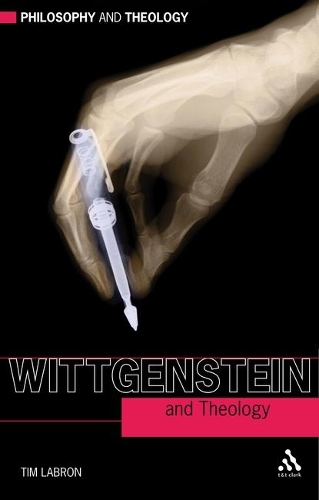
Wittgenstein and Theology
(Hardback)
Publishing Details
Wittgenstein and Theology
By (Author) Dr. Tim Labron
Bloomsbury Publishing PLC
T.& T.Clark Ltd
15th March 2009
United Kingdom
Classifications
Tertiary Education
Non Fiction
Philosophy
192
Physical Properties
Hardback
160
Width 138mm, Height 216mm
314g
Description
Does Wittgenstein's philosophy lead to atheism Is it clearly religious Perplexingly, both of these questions have been answered in the affirmative. Despite the increasing awareness and use of Wittgenstein's philosophy within theological circles the puzzle persists: 'Does his philosophy really fit with theology' It is helpful to show that Wittgenstein has no agenda towards atheism or religious belief in order to move ahead and properly discuss his philosophy as it stands. A study of Wittgenstein's key concepts of logic and language in his major works from the Tractatus Logico-Philosophicus to the Philosophical Investigations and On Certainty reveals how he came to see in his later work that meaning is not simply intuitive or a consequence of solitary empirical investigation; rather, meaning is shown in how words are woven into the community of concrete life practices. A discussion of Christology and Luther's distinction between the theologian of glory and the theologian of the cross provide clear theological analogies for Wittgenstein's later philosophy. It also provides important evidence to show-through examples of scripture, liturgy, and practice-that Wittgenstein's philosophy is a useful tool that can fit with theology.
Reviews
'Wittgenstein and Theology is a courageous statement in an age when few theologians are able or willing to undertake such orginal andbroad examinations of traditional and contemporary questions. Labron has produced a work which will be of interest to both Wittgenstein specialists and to those who are more generally interested in the relationship between modern philosophy and theology in the Christian tradition.' David Goodill OP, Blackfriars hall, University of Oxford, UK -- David Goodill
Tim Labron provides a welcome exploration of Wittgenstein's thought in relation to Christian theology, drawing upon a wide range of sources and sketching the opening exchanges in a potentially fruitful dialogue. Wittgenstein and Theology is a courageous statement in an age when few theologians are able or willing to undertake such original and broad examinations of traditional and contemporary questions. Labron has produced a work which will be of interest to both Wittgenstein specialists and to those who are more generally interested in the relationship between modern philosophy and theology in the Christian tradition. -- David Goodill, Blackfriars, University of Oxford, UK
Review in Theological Book Review Vol 21, 2009
"As an introduction to Wittgenstein for students of theology, this slim, provocative volume is a genuine contribution precisely because it is so very provocative." -Brad J. Kallenberg, Modern Theology, July 2010
'Tim Labron has written a highly provocative book on Wittgenstein and Theology. He argues that Wittgenstein's philosophy moves away from the prevalent Western tradition of philosophy towards Jewish thought and finally Christian thought. Whereas Western philosophy andtheology largely follow the Platonic and Cartesian paths, Wittgenstein doesn't, nor does Chalcedon. This is only one of the many challenging points of this clearly written and well-argued study. It will no doubt provoke discussion about the relationship of Wittgenstein's philosophy to theology, and it should' Ingolf U. Dalferth, Claremont Graduate University, USA and University of Zurich, Switzerland -- Ingolf U. Dalferth
Labron's perspicuity and judgement produce a very workable introduction to a complex thinker, one which would benefit many graduate students in theology. -- Terrance Klein * Heythrop Journal *
"Does Wittgenstein's philosophy lead to atheism Is it clearly religious Both of these questions have been answered in the affirmative. A study of Wittgenstein's key concepts of logic and language in his major works from the Tractatus Logico-Philosophicus to the Philosophical Investigationsand On Certainty reveals how he came to see in his later work that meaning is shown in how words are woven into the community of concretelife practices. A discussion of Christology and Luther's distinction between the theologian of glory and the theologian of the cross provides theological analogies for Wittgenstein's later philosophy. It also provides important evidence to showthrough examples of scripture, liturgy, and practicethat Wittgenstein's philosophy is a useful tool that can fit with theology" -- Shofar * Shofar *
Author Bio
Tim Labron is Professor and Department Chair in Philosophy and Religious Studies at Concordia University of Edmonton, Canada. He is author of Science and Religion in Wittgensteins Fly Bottle (Bloomsbury, 2016), Bultmann Unlocked (Bloomsbury, 2011), Wittgenstein and Theology (Bloomsbury, 2009), and Wittgensteins Religious Point of View (Bloomsbury, 2006).
